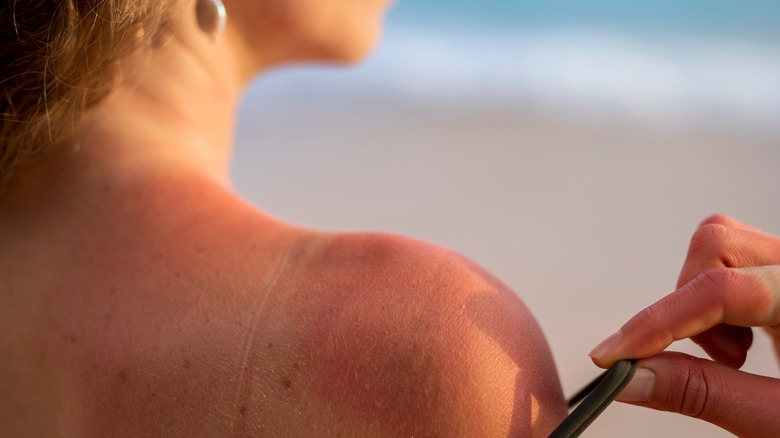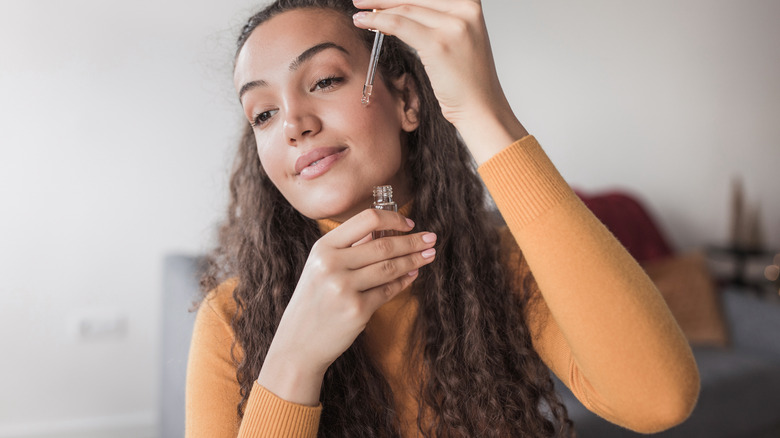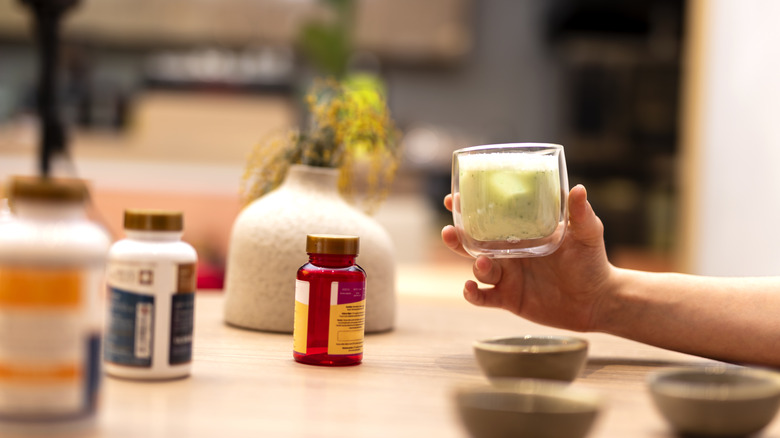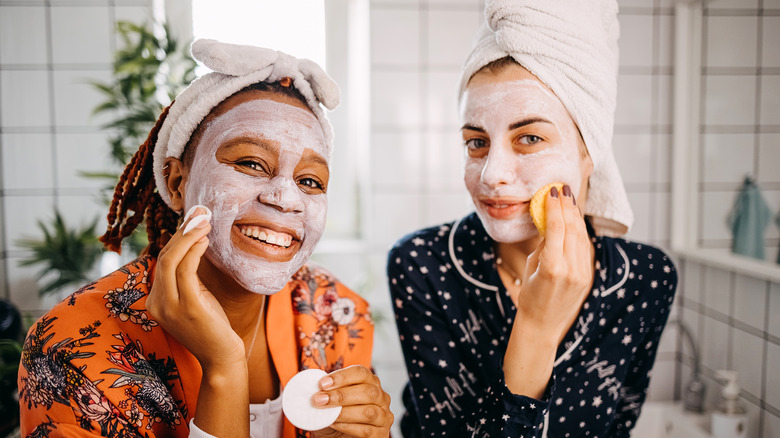All About Antioxidants: What They Can Do For You And The Types Defined
Skincare and wellness products are often ridden with terms that we only pretend to understand. How many times have you picked up a serum or supplement because it advertises a service or element that you know is good for you, but not exactly why?
Antioxidants are one of those ingredients. When you read the word, your gut tells you that they are beneficial for your health and well-being. After all, the news as well as medical and pharmaceutical companies are constantly telling us so. But, if you were to be prodded further, would you be able to explain?
There's no shame in not knowing the mechanics of how certain things operate. However, knowing gives you the power to make the best decisions for your body and health. So, here's the tell-all about antioxidants. From what they are, how they work, to where you can get them, we're breaking it down.
What are oxidants?
The root of the term "oxidant" is oxygen. The "anti" in "antioxidant" implies that antioxidants work against oxygen, but not the oxygen you're necessarily thinking of. The oxygen we breathe is known as O2, and it refers to two oxygen atoms that are molecularly bonded. Our daily exposure to elements like UV rays, bacteria, viruses, pollution, stress, pesticides and industrial chemicals can destroy that molecular bond and cause "free radicals," or lone, unstable molecules to float around the body. In their desperation, these compounds incorrectly bond with our good cells, damaging our DNA, collagen, and elastin. This is called oxidative damage.
Of course, it's important to keep in mind that free radicals are an inevitable part of life (Even regular exercise causes the body to generate them). However, over prolonged periods of time, the damage they cause can add up. Per research published in the International Journal of Cosmetic Science, oxidant damage shows up on the skin in the form of hyperpigmentation, increased or premature wrinkling, sagging, dryness, or in some cases, skin cancer. Antioxidants, then, are special molecules that fight against these processes. "Think of antioxidants as a sponge that sops up free radicals," Dr. Sandy Skotnicki explains in Self.
Topical antioxidants can be beneficial for your skin
UV exposure is the most common cause of oxidative damage on the skin, which is why antioxidants come up time and time again in skincare discussions. The most common ones you'll see included in skincare products are Vitamin A, commonly known as retinol, vitamin E, and vitamin C.
When applied topically, vitamin A works by removing dead skin cells and encouraging cell renewal. It also balances the skin's sebum production to reduce excessive oiliness or dryness. Retinoids, which are derivatives of retinol, also provide these benefits. Topical Vitamin C, meanwhile, promotes collagen and elastin production which maintain skin elasticity and structure. The same is true for vitamin E, with the added benefit of reducing skin inflammation. Together, these antioxidants can reduce hyperpigmentation, sagging, and the development of wrinkles. Finally, minerals like selenium and zinc have been shown to prevent several skin conditions like psoriasis, dermatitis, and acne, while copper and silicon promote healthy hair and nails.
Dermatologist Dr. Adel advises that a retinol product is best applied on clean, dry skin at night before any other serums for optimal absorption. As for vitamin E, however, Dr. Anita shares that vitamin E capsules have the highest concentration of any vitamin E product. You can break or prick these capsules to let the oil out and apply directly to your skin.
What about mineral antioxidants?
Mineral antioxidants like selenium, zinc, copper, and silicon can often be found in trace amounts in a variety of skincare products. For example, zinc ointments can be used as spot treatments for acne. Zinc oxide is also used in sunscreens since it can reflect UV rays. Copper is found in makeup products as it can improve skin complexion. Silicon is a popular choice for inclusion in shampoos, conditioners and hair serums since it smooths and strengthens hair.
You can kook for these elements in the ingredients list of your skincare, haircare, and makeup products. In addition, just as skincare brands formulate vitamin-specific serums, mineral-specific serums are also available if you desire.
Some antioxidants can support general health
The thing about antioxidants is they don't target specific areas of your body. A lot of the antioxidants you use in your skincare routine will also be beneficial for your general health. For example, we've all heard the stories about sailors at sea losing their teeth because of malnutrition. Though the disease is uncommon now, vitamin C plays an important role in preventing scurvy. Vitamin C deficiency is also linked to anemia since vitamin C helps in the absorption of iron into the blood. Together with vitamin E, vitamin C helps in repairing wounds.
Another class of antioxidants, known as carotenoids, support eye health. This class includes a popular antioxidant known as lycopene. Carotenoids have been linked with preventing cataracts. Polyphenols are an antioxidant group that are shown to reduce and deter tumor development and activity, earning them the nickname "anticancer antioxidant". Flavonoids, an ingredient you may see on some labels, are a type of phenol. Selenium also shows anti-cancer activity, and supports good overall cardiovascular health.
You can get a healthy amount of antioxidants through your diet
"Eating the rainbow" takes on a new meaning when it comes to sourcing antioxidants through diet. In nature, the best sources of antioxidants are fruits, vegetables and whole grains, though some foods are higher in some antioxidant levels than others.
Vitamin C is best sourced through citrus fruits and cruciferous vegetables like broccoli, cabbage, and cauliflower. Vitamin E is best absorbed through vegetable oils like sunflower or soybean oil. Carotenoids are found in many orange plants, including pumpkin and carrots. Vitamin A may be the outlier in that it is best found in dairy as well as liver. Selenium, zinc, copper, and silicon are found in a variety of foods ranging from rice and cereals, to red meat and fish.
For a little zest, you can also look to spices, herbs, and teas for antioxidant boosts. Green tea, time and time again, is touted for its antioxidant properties, but did you know oregano and thyme also display antioxidant activity?
Interactions between antioxidants
Antioxidants work together to support health. Some work more closely and better together than others. In skincare, combining Vitamin C, E and a compound known as ferulic acid yields optimal topical benefits. You can look for these ingredients on product labels. On the flip side, avoid using vitamin C and A (or its derivatives) at the same time, as the combination of them could lead to excessive exfoliation. In fact, experts typically advise to avoid combining vitamin C with most other active compounds because it is so volatile.
When it comes to diet, antioxidants generally interact to support each others' functions. Each antioxidant may interfere and block free radicals in different ways, but they all work to stop oxidative damage. In fact, there is no research to support that idea that individual antioxidants work against other individual antioxidants.
Can you use supplements to dose up on antioxidants?
In addition to skincare products and whole foods, you've likely seen a lot of these antioxidants lined in rows of supplement bottles at health stores. Before you go purchasing tons of pills and capsules, know that supplements do not endow the benefits of antioxidants the way that diet and topical application do. In fact, some research shows they could actually swing the oxidative equilibrium too far in the opposite direction. What's more is that it's possible to overdose on antioxidants as well. Per CBC, excessive intake of antioxidants has actually been linked to negative health outcomes including the development of some diseases. Often, these overdoses happen because supplements contain way too high concentrations of active elements, which when taken regularly lead to overdoses.
In the end, instead of hyper focusing on meeting your quota of antioxidants for the day or week, trust that if you have a varied diet full of whole, nutritious foods, cooked in a variety of ways, you are nourishing your body with the right types and amounts of antioxidants. On the same note, if your skincare routine is keeping away undesired skin textures or complexions, you are likely keeping oxidative damage at bay.







